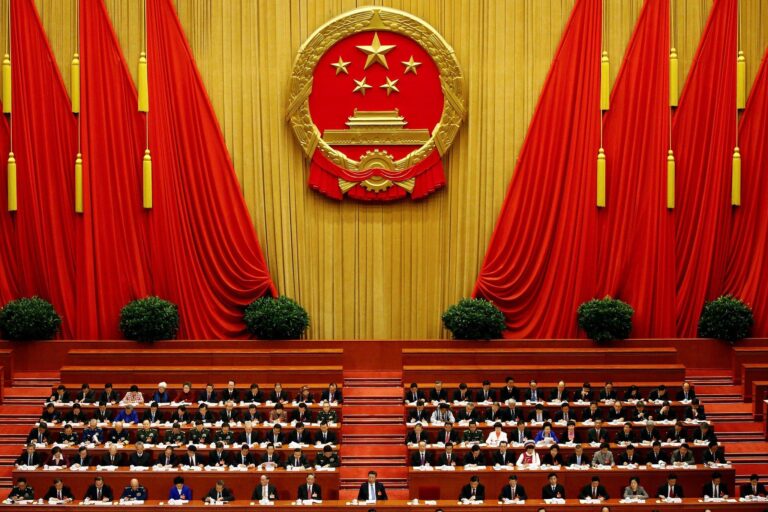As tensions between global powers continue to shape international relations, China’s interest in New York politics has become an increasingly significant yet underexamined facet of its foreign policy strategy. Beyond New York’s status as a financial hub and home to the United Nations headquarters, the city represents a critical nexus where economic, political, and cultural influences intersect-offering China a unique avenue to advance its geopolitical ambitions. This article explores the reasons behind Beijing’s growing engagement with New York’s political landscape, shedding light on how local governance, immigration policies, and business regulations in the city fit into China’s broader global objectives.
China’s Strategic Interests in New York’s Political Landscape
China’s engagement with New York’s political arena extends beyond conventional diplomacy, reflecting its broader ambition to shape global governance and economic policies. New York, as a hub of international finance and home to the United Nations headquarters, offers a unique platform where local politics intersect with global decision-making. By cultivating relationships with influential city officials and key policy influencers, China seeks to promote initiatives that align with its Belt and Road Initiative and trade interests while also safeguarding its expanding economic footprint in North America.
Key strategic interests include:
- Leveraging New York’s financial markets to attract investment in Chinese infrastructure projects.
- Engaging in local policymaking to influence regulatory frameworks affecting foreign businesses.
- Utilizing New York’s diplomatic channels to enhance China’s soft power and project a favorable international image.
- Monitoring and countering narratives that could impact Sino-American relations at multiple levels.
| Area of Influence | Strategic Objective | Impact on New York Politics |
|---|---|---|
| Financial Sector | Investment and Capital Flow | Boosting bilateral business partnerships |
| Diplomatic Channels | Soft Power Expansion | Shaping global discourse through UN |
| Local Legislation | Regulatory Influence | Facilitating easier market entry |
How New York’s Policies Influence Sino-American Economic Relations
New York’s policies increasingly act as a bellwether for Sino-American economic engagement. As a global financial hub, the state’s regulatory environment, trade initiatives, and investment incentives directly shape the narratives that Chinese investors and policymakers follow closely. Recent local mandates targeting technology transfer and intellectual property protections have resonated in Beijing, prompting recalibrations in bilateral negotiations that extend far beyond Wall Street.
Beyond finance, New York’s stance on areas such as environmental standards and labor regulations has introduced new layers of complexity to trade talks and joint ventures. Key factors influencing China’s economic calculus include:
- New York’s enforcement of trade compliance affecting cross-border transactions
- State-level visa policies impacting skilled labor mobility
- Public-private partnerships championed by the state government fostering innovation
- Infrastructure investments facilitating transpacific logistics chains
| Policy Area | Chinese Response | Impact on Trade |
|---|---|---|
| Tech Export Controls | Increased R&D investment domestically | Heightened scrutiny on US-China tech deals |
| Environmental Regulations | Shift towards green partnerships | Growth in sustainable product exchanges |
| Labor Mobility Rules | Adjustment in visa application strategies | Impact on skilled workforce collaborations |
Recommendations for Navigating China’s Growing Engagement in U.S. Urban Politics
U.S. policymakers and urban leaders must adopt a nuanced approach when addressing China’s expanding footprint in city-level politics. First, prioritizing transparency around foreign influence can help mitigate covert efforts to sway local decision-making. Cities should implement comprehensive disclosure policies for political donations and lobbying activities, establishing clear boundaries that prevent undue interference in municipal affairs. Additionally, fostering robust partnerships with federal agencies will enhance information-sharing and streamline responses to potential risks posed by foreign actors.
Key strategies to consider include:
- Enhancing foreign investment screenings focused on urban infrastructure projects
- Conducting regular training for city officials on recognizing and countering influence operations
- Engaging local communities through education campaigns about foreign political engagement
| Sector | Potential Risk | Recommended Action |
|---|---|---|
| Real Estate | Market manipulation, political leverage | Stricter disclosure & vetting |
| Technology | Data access and influence operations | Cybersecurity audits |
| Education & Culture | Propaganda and soft power expansion | Curriculum transparency & partnerships |
Wrapping Up
As the dynamics of global influence continue to evolve, China’s growing interest in New York politics underscores a strategic effort to extend its reach beyond traditional diplomatic channels. By engaging with key political and economic institutions in one of America’s most influential cities, Beijing aims to shape narratives and policies that resonate far beyond local borders. Understanding this interplay is crucial for policymakers and observers alike, as it offers insight into the broader complexities of U.S.-China relations in an increasingly interconnected world.




